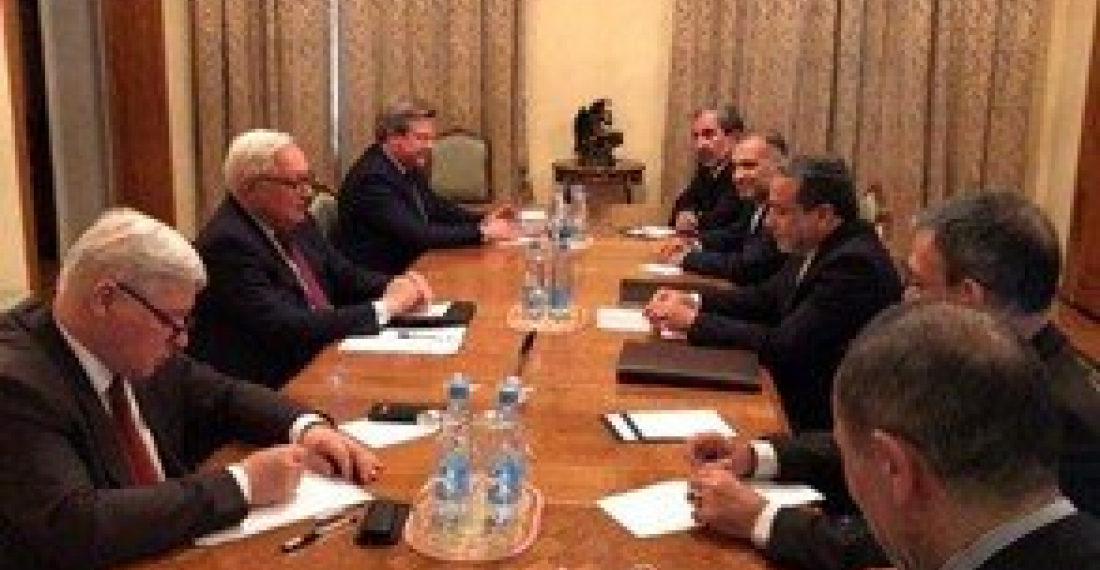Iran's Deputy Foreign Minister and Special Presidential Envoy,
Abbas Aragchi is continuing his diplomatic trips to introduce Iran's Karabakh peace plan to the sides in the conflict and interested parties. On Thursday (29 October) he was in Moscow and Yerevan, after earlier visiting Baku. He is expected to go to Ankara today. Although the plan is approved by the country's top officials, its full details are not announced yet.
In Moscow, Araghchi met with Special Representative for Nagorno-Karabakh Andrei Rodenko and the Russian Deputy Foreign Minister Sergei Ryabkov. He later tweeted that Iran and Russia have a common approach.
Shared Iran's initiative with Andrey Rudenko, Deputy Foreign Minister of Russia, in a fruitful meeting today in Moscow. Iran and Russia share similar approaches towards Nagorno-Karabakh Conflict.
— Seyed Abbas Araghchi (@araghchi) October 29, 2020
Also had good discussion -as always - with Sergey Ryabkov on the future of JCPOA. pic.twitter.com/099uCym1LZ
Speaking to reporters from Moscow, Araghchi said that:
"The proposal of the Islamic Republic of Iran is based on humanitarian principles, including the establishment of a ceasefire, stopping attacks on residential areas and civilians and the return of refugees to their homes."
The first step of the Iranian plan would be the practical adherence of countries in the region to a number of principles including territorial sovereignty, the principle of inviolability of borders, respect for humanitarian and minority rights and non-aggression, as per Araghchi's statement.
The plan involves several stages and Araghchi thinks that it can "lead the situation to a lasting peace and end the existing conflict and, of course, the occupation of the territories of the Republic of Azerbaijan."
Araghchi added to reporters in Moscow that the Minsk group countries have been ineffective in solving the crisis and that the Iranian plan is based on regional efforts with Russia playing an important role in it.
Araghchi has been receiving polite but cautious responses to the Iranian plans. In both Baku and Yerevan the delegation was well received and emphasis was made in both capitals about the correct position of the Iranian side. However in Yerevan, Foreign Minister Zohrab Mnatsakanyan reminded that the Minsk Group co-chairs were the only mechanism for resolving the Karabakh conflict, apparently throwing cold water on the Iranian plan. But Yerevan also promised "to study" the Iranian plan.
It is not clear if Araghchi will continue his travels to other capitals, after his stop in Anakra.
source: commonspace.eu with IRNA (Tehran) and agencies
photo: Iranian presidential envoy Araghchi meeting officials in Moscow on 29 October 2020.







